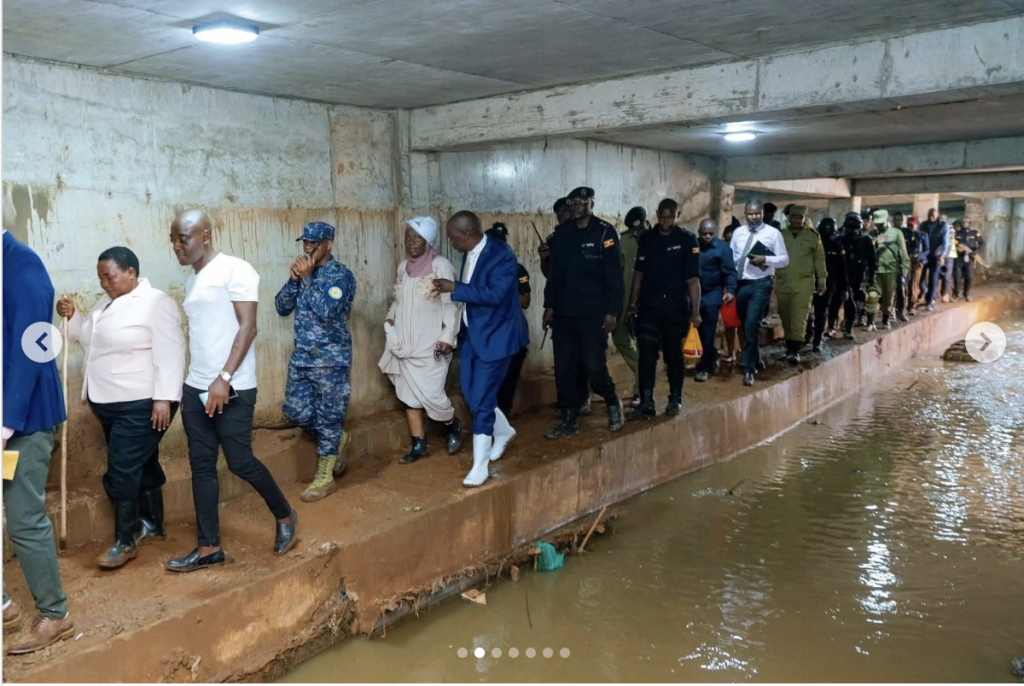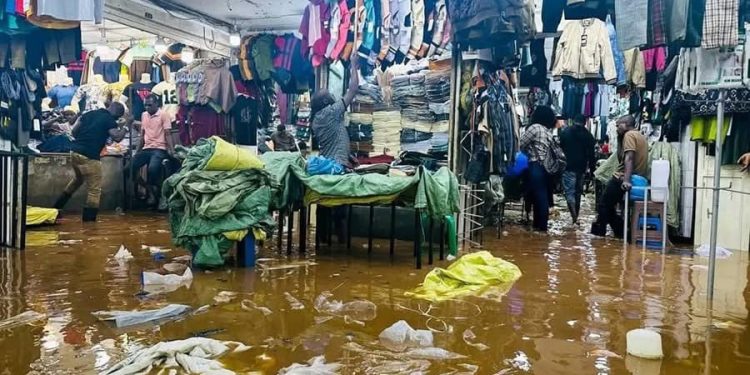When unprecedented floods swept through downtown Kampala, destroying multibillion businesses, and crippling transport, questions immediately turned to how such a disaster unfolded in the very heart of the capital.
But a trail of letters issued over months some stretching mid this year reveal that Kampala Capital City Authority (KCCA) repeatedly warned businessman Hamis Kiggundu alias Ham over his construction works along the Nakivubo Channel, directing him to halt activity, submit technical drawings, allow inspections, and address safety concerns.
He never responded. Not once.
The documents from the Directorate of Engineering, the Director of Physical Planning, and finally the Executive Director Sharifah Buzeki’s office show a consistent message: construction works at the channel were altering the natural water flow and posed imminent flood risks to the city’s drainage system.
Yet instead of compliance, silence followed.
Below is how the warnings built up and how disaster eventually struck.
Repeated Stop-Work Orders, No Response
KCCA first issued a technical compliance request, advising Ham’s team to stop all works along the channel until approved designs and environmental mitigation plans were submitted.
The Authority raised questions about the structural encroachment and the obstruction of drainage flow.
A follow-up letter more explicit and urgent, warned that failure to comply “exposed downtown Kampala to avoidable flooding risk.”
There was no written acknowledgement.
No engagement.
No engineering drawings submitted.
The works continued.
KCCA Experts Denied Access
Another letter invited Ham or his representatives for a joint inspection to evaluate the project’s footprint and drainage alignment. KCCA emphasized that key stormwater corridors had already been altered, requiring immediate assessment before rains intensified.
Again, no response was recorded.
The Authority was left issuing reminders that went unanswered.
Final Notice
On 2nd September 2025, KCCA escalated the matter formally.
“I am deploying a team of surveyors to the proposed site to undertake a survey… to determine with certainty the extent of land to be leased to you.” wrote Sharifah Buzeki, Executive Director, KCCA
This letter was not merely procedural, it signaled KCCA’s intention to establish what exactly had been built into the drainage system.
Even then, no acknowledgment came from Hamis Kiggundu or Kiham Enterprises.
Surveyors were sent. Works on the channel continued. Rainy season approached.
The Floods Hit
When flooding finally submerged Kiseka, Nakivubo, Owino, KCCA market areas, and the taxi park, the Authority’s internal files revealed a painful truth:
The disaster was foreseen. The warnings were documented. The directives were ignored.
KCCA insiders now confirm that had the channel remained open at its original capacity, the volume of water that led to destruction would have been significantly reduced.
The public is now asking:

Why did a private developer ignore official city directives?
Why did KCCA enforcement powers fail at the final moment?
Who bears accountability for the economic losses now recorded?
What Happens Next
The Ministry for Kampala is preparing a formal review of private developments along protected waterways. Legal and parliamentary committees are expected to summon city officials and developers for testimony.
KCCA, in its reports, maintains one consistent line:
“The developer was warned. The risks were communicated. Compliance was not achieved.”
As Kampala mourns its losses, the paper trail speaks bluntly:
The city did not fall by accident it was warned, ignored, and left vulnerable.




